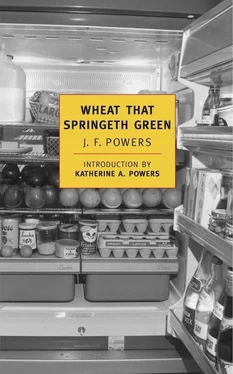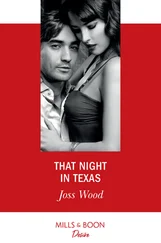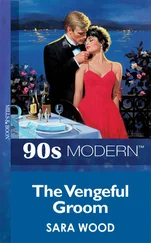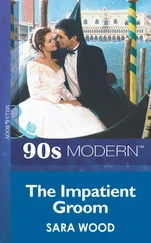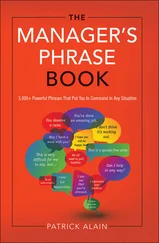J. Powers - Wheat That Springeth Green
Здесь есть возможность читать онлайн «J. Powers - Wheat That Springeth Green» весь текст электронной книги совершенно бесплатно (целиком полную версию без сокращений). В некоторых случаях можно слушать аудио, скачать через торрент в формате fb2 и присутствует краткое содержание. Год выпуска: 2000, Издательство: NYRB Classics, Жанр: Современная проза, на английском языке. Описание произведения, (предисловие) а так же отзывы посетителей доступны на портале библиотеки ЛибКат.
- Название:Wheat That Springeth Green
- Автор:
- Издательство:NYRB Classics
- Жанр:
- Год:2000
- ISBN:нет данных
- Рейтинг книги:5 / 5. Голосов: 1
-
Избранное:Добавить в избранное
- Отзывы:
-
Ваша оценка:
- 100
- 1
- 2
- 3
- 4
- 5
Wheat That Springeth Green: краткое содержание, описание и аннотация
Предлагаем к чтению аннотацию, описание, краткое содержание или предисловие (зависит от того, что написал сам автор книги «Wheat That Springeth Green»). Если вы не нашли необходимую информацию о книге — напишите в комментариях, мы постараемся отыскать её.
Wheat That Springeth Green — читать онлайн бесплатно полную книгу (весь текст) целиком
Ниже представлен текст книги, разбитый по страницам. Система сохранения места последней прочитанной страницы, позволяет с удобством читать онлайн бесплатно книгу «Wheat That Springeth Green», без необходимости каждый раз заново искать на чём Вы остановились. Поставьте закладку, и сможете в любой момент перейти на страницу, на которой закончили чтение.
Интервал:
Закладка:
People, he was thinking, have a right to be judged by their own standards until these can be raised, when he noticed that there were two calendars on his desk and no check.
Well, he wanted no part of it. Yes, the Lanes might attend Mass elsewhere. But they would discover when the time came, say, to have a baby baptized, that it couldn’t be done elsewhere. The Church, to that extent anyway, was still the Church.
A bad situation, though — one of those situations from which the wise pastor ostensibly retires but handles in due course through his assistant.
Later that evening, after Father Felix had retired to the new bed in the guest room, Joe and the curate (whose name Joe still didn’t know) sat on in the pastor’s study. Joe, doing most of the talking, had had less than usual, the curate more, it seemed — he was yawning. “Used to be,” Joe was saying, “we all drove black cars. I still do.” Joe couldn’t understand why a priest, even a young priest today, if able to afford a new car, would choose one the color of the curate’s. “I guess it’s not important. St Francis,” Joe said, answering the phone.
“If you’re St Francis, I’m Lyndon B. Johnson.”
“Hold on, Lyndon. Don’t hang up.”
But Lyndon did.
“About phone calls, Father. Be sure you get the name and address before you give out any information, even Mass times. And don’t settle bets. And don’t discuss theology. Or you’ll have drunks and worse calling at all hours. I’ve got a few more things to tell you, but they’ll keep.”
“In that case…” The curate swallowed a yawn. “Think I’ll go to bed, Father.”
Joe — he hated to go to bed — changed the subject. “How’s the room? O.K.?”
“O.K.”
Joe had been expecting a bit more and wondered if he had hurt the curate’s feelings. “It’s not important, what I was saying about cars.”
The curate smiled at Joe. “My uncle’s the dealer in Whipple. He gave me a deal on the car, but that was part of it — the color.”
“I see.” Joe tried not to appear as interested as he was. “What’s your uncle call his place — Whipple Volkswagen? I know a lot of ’em do. That’s what they call it here — Inglenook Volkswagen.”
“He calls it by his own name.”
“I see.” Joe tried not to appear as interested as he was. “And this is your father’s brother?”
“My mother’s.”
“I see.”
“Think I’ll turn in now, Father.”
“Maybe we both should. Sunday’s always a tough day.”
12. SUNDAY
THAT MORNING, WITH Joe watching from the sacristy, the curate said his first Mass in the parish. He was slow, of course, but he wasn’t fancy, and he didn’t fall down, though he did stumble once. (This had made Joe think of the old preecumenical, or triumphalist, joke about the curate who’d lost his footing at his first Mass, causing the pastor to whisper from the sacristy, “Get up! Get up! They’ll be doing that down the street,” and had also made Joe think the joke is on us now.) His sermon was standard, marred only by his gestures, and he read the announcements well. In one important respect he had been a disappointment.
“I should’ve told you,” Joe said to him in the sacristy after Mass, “to introduce yourself to the congregation.”
“Sorry. I’ll do it next week. Father, what’d you think of the sermon?”
What have we here, a budding preacher? Let’s hope not. “The sermon? Good enough. One thing I would say, Father. Your words and gestures were a little out of sync at times — looked like a bad job of dubbing.”
The curate nodded. “Somebody said something like that at the sem.”
Joe was pleased to have his criticism confirmed and taken so well. “Gestures — you have to feel ’em, or be a very gifted speaker. I gave ’em up.”
“Maybe I should.”
Joe nodded, pleased at the prospect.
“By the way,” the curate said, “I’ll be eating out today.”
“Oh?” A little sudden, wasn’t it?
“With one of my classmates.”
“I see.” But Joe didn’t.
“Thought I’d better tell you.”
“Good idea, but the word is ask. ”
“What I meant, Father.”
“O.K.”
That afternoon the Twins were rained out in Boston. So Joe and Father Felix were stuck with each other — and had at it in the study with the Sunday paper. Joe, by his good example, his tidiness, with the paper, had tried to make Father Felix mindful of the next reader, but had failed. The monk, whose glasses still needed changing, still held the paper open in front of him, as far away from him as he could, so that it was like the prow of a ship, until his arms gave out and the whole thing came crashing down in his lap — this was hard on the paper. Instead of smoothing it out while waiting for the strength to be restored to his arms, he cocked his head back and read what he could of the text in its collapsed and crumpled condition, the salient items or sentences thereof, noisily wrenching up more, shifting and tightening his grip like a dog with a bone — this was hard on the paper. If he’d read the funnies first (the only part of the paper he’d miss if it were missing), then Joe could have the other parts while they were fresh and intact. But no, the monk had to mess up the rest of the paper, it seemed, before he read the funnies.
Joe was that way about the sport section, keeping it to the last, sequestering it nowadays from Father Felix — that it wasn’t missed said all there was to say about the monk as a sports fan, a role he worked at when there was a game on TV. “Struck ’im out!” he’d say in antiphon to the announcer, or, in the event of a home run, chant along with him, “Going, going, gone !” Or with the crowd, if it was football, “Dee-fense! Dee-fense!” All show. At crucial moments he’d get up and go to the bathroom.
Joe had hoped for some inside info when he learned that one of Father Felix’s maternal uncles, now dead, whose name Joe remembered, had played tackle in pre-platoon days with the Packers and the Cardinals. “The Chicago Cardinals, Joe. You see, the team was later moved to St Louis or Kansas City.” Or! That was the inside info. And: “Stan had a very nice wife, three very nice children — one a Sister of St Joseph — and a very nice business, a bowling alley in Kenosha.” “Listen, Father. Stan lined up with the great Johnny Blood, with the great Ernie Nevers, and against the great Bronco Nagurski.” “Joe, how old are you?” “Forty-four, why?” “Joe, you’re going through a dangerous period for a man, especially for a priest. I’ve heard it called second puberty.” “You have, huh? And was this by any chance at the monastery?” “It could’ve been.” “I thought so. Luther was right about you guys.” (Joe had been pleased to get that in, now that Luther was being fitted out with wings by ecumenists, some of them monks, and it sounded no worse to Joe in retrospect than what Father Felix had said to him.)
Joe had tried hard with Father Felix. In the beginning there had been afternoons at the stadium (spoiled not so much by the monk’s ignorance and indifference as by his rather amused attitude), drives into the countryside to see the autumn foliage (“You should see it at the monastery”), visits to new churches of all denominations, since Joe would have to build a church someday (visits discontinued because the monk wasn’t, as he put it, terribly interested in new churches, or, for that matter, old ones, and — it came out — disliked the bucket seats in Joe’s car). So now, as a rule, they spent Sunday afternoons at home, in the study, sent out for seafood dinners, on which the monk’s verdict was always “Very tasty,” and watched television (which the monk didn’t have in his cell at the monastery). This was all right when there was something on, by which Joe meant major sports, including golf, and also things like “Meet the Press” and “Face the Nation.” But the monk wasn’t so discriminating — he enjoyed quiz programs, bowling, water-skiing, government propaganda. At such times, after a beer or two, Joe would go down to his office and read the sport section in peace and quiet, or retire to his bedroom and drop off, float off, collar in hand.
Читать дальшеИнтервал:
Закладка:
Похожие книги на «Wheat That Springeth Green»
Представляем Вашему вниманию похожие книги на «Wheat That Springeth Green» списком для выбора. Мы отобрали схожую по названию и смыслу литературу в надежде предоставить читателям больше вариантов отыскать новые, интересные, ещё непрочитанные произведения.
Обсуждение, отзывы о книге «Wheat That Springeth Green» и просто собственные мнения читателей. Оставьте ваши комментарии, напишите, что Вы думаете о произведении, его смысле или главных героях. Укажите что конкретно понравилось, а что нет, и почему Вы так считаете.
